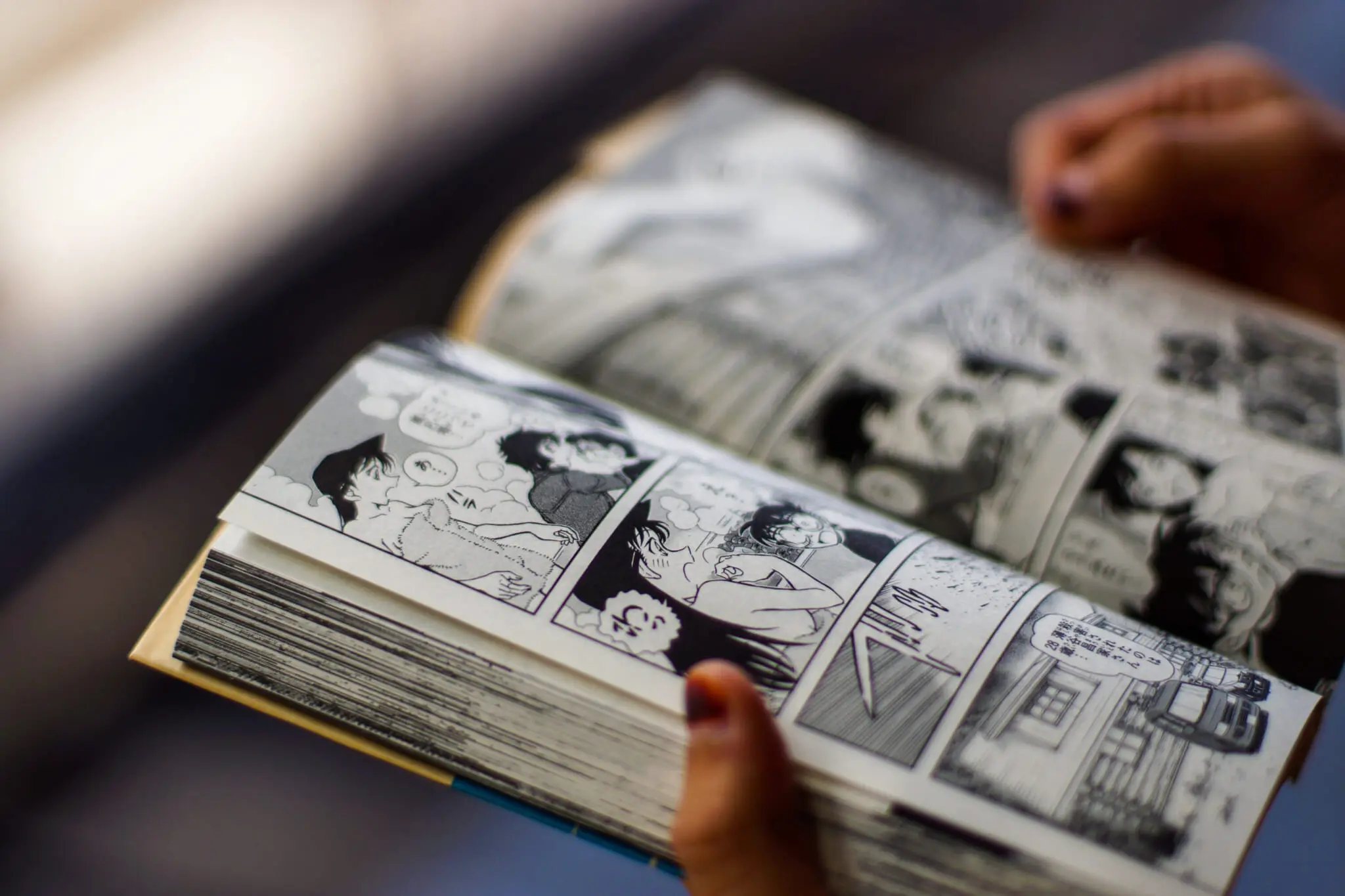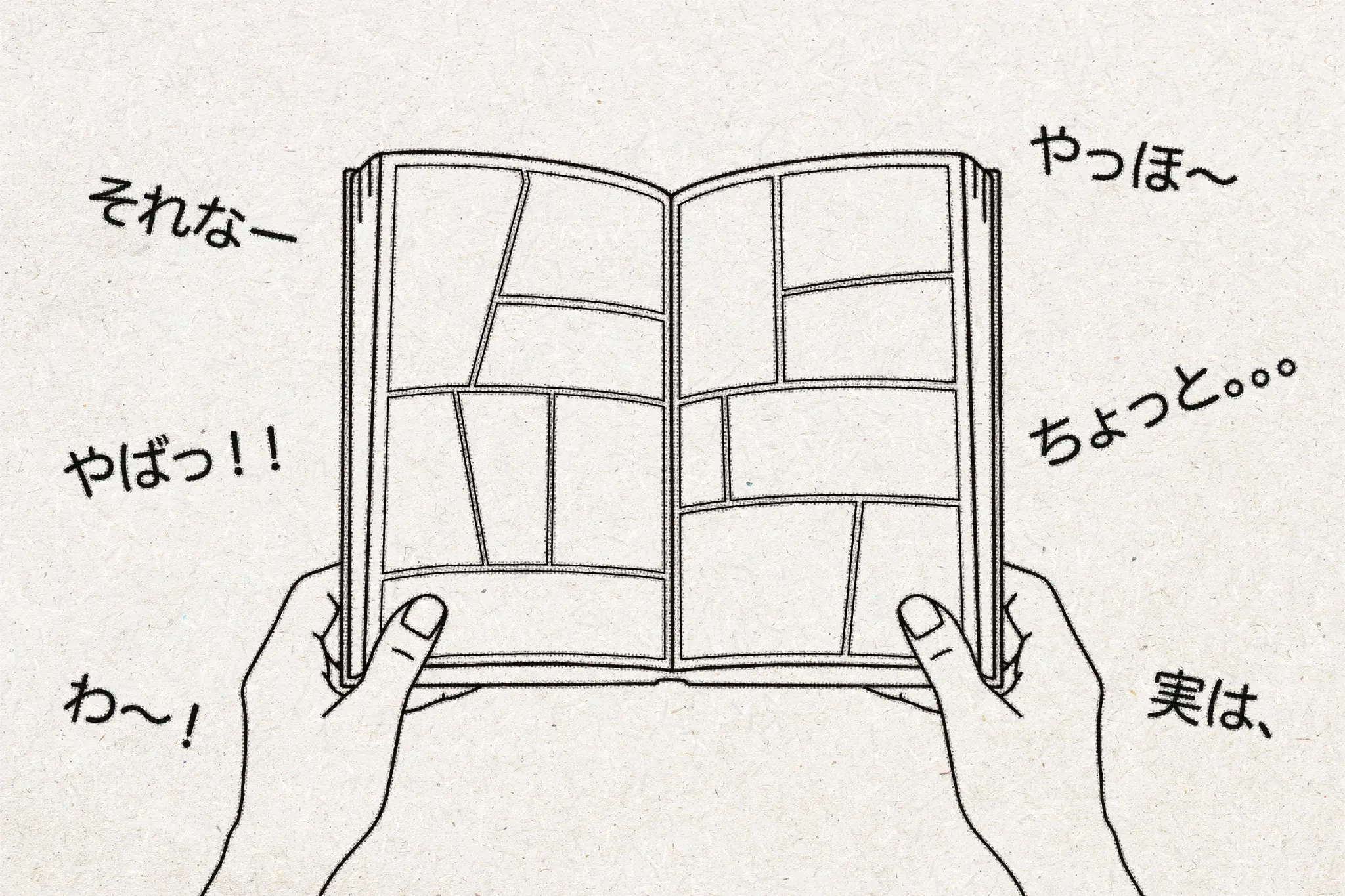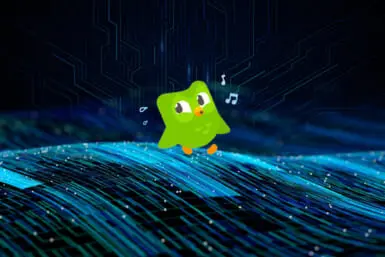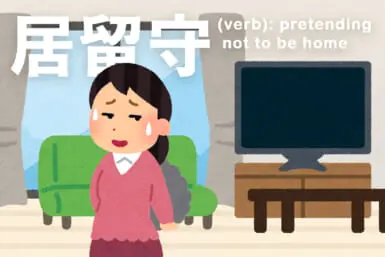Once you’ve mastered the basics of hiragana and katakana, it can be tempting to dive straight into your favorite series and appreciate your newfound language powers. But the truth is you’re likely going to be overwhelmed by the big jump in vocabulary and grammar.
Here are some general tips for beginner learners who may want to incorporate manga into their studying routines:
- If you’re not confident in your kanji, manga with furigana is recommended to ensure you can at least sound out the sentence. This means you’ll have to stick to manga for a younger readership, but don’t let this fool you. There’s a lot of good material nonetheless.
- Slice-of-life manga are usually easier to get into and understand than fantasy series. The former will use everyday language you can quickly pick up, while the latter will have more genre-specific words you’ll have a hard time remembering in your day-to-day life.
- Manga written with a lot of regional slang can be difficult to decipher.
It’s important to note that not all manga are created equal and even ones with deceptively cute art are sometimes aimed at an adult audience and cover difficult topics. Here are some of our top recommendations if you’re not quite an intermediary reader yet but are looking for some reading practice outside of your conventional Japanese textbook.

Photo by Luthfi Syahwal vis Shutterstock
Doraemon
This cult manga classic by Fujiko F. Fujio, about the antics of a robotic cat and his friend Nobita, needs no introduction. Despite its first serialization in 1969, Doraemon is still ongoing, withstanding the test of time alongside a ginormous fanbase. With an endearing storyline, light humor and unconventional antics, Doraemon is a great read for both adults and kids. And while the language isn’t too difficult, having a native Japanese speaker explain some colloquial phrases and slang might speed up some of the comprehension.
Doraemon is one of Japan’s top-selling manga, having sold more than 250 million copies worldwide. Fans of the story might want to consider picking up Doraemon Dokodemo Nihongo, a Doraemon-themed Japanese language textbook that comes with manga panels to help you study.
Hajime no Ippo
Another endearing favorite in the manga world is Hajime no Ippo by George Morikawa, one of the longest-running sports-themed manga to date. Follow along and be inspired by Ippo and a colorful cast of characters who are all aiming to become the strongest boxer in the world. Hajime no Ippo naturally uses a lot of boxing vocabulary, which can be great to expand your word bank, especially if you’re interested in sports. You can also learn new Japanese dialects through some of the manga’s recurring characters, such as Takeshi Sendo, who hails from Osaka. Hajime no Ippo is a masterpiece in storytelling with incredibly profound moments, making it a manga well worth pushing through language barriers to fully appreciate it.
Hana Yori Dango
Romance manga are fantastic for learning everyday words and expressions, and maybe even a flirtatious line or two. One of the greats when it comes to this genre is definitely Hana Yori Dango or Boys Over Flowers by Yoko Kamio. The plot unfolds at the elite Eitoku Academy where middle-class student Tsukushi accidentally gets involved with F4, four boys belonging to Japan’s wealthiest families. The sweet moments, coming-of-age plot points, and rom-com antics are just some of the reasons why Hana Yori Dango can introduce some great daily life vocabulary while also being highly entertaining.
Dragon Ball
The Dragon Ball franchise is an all-consuming one at this point, but it all began in 1984 as a manga series by Akira Toriyama. Inspired by the classic Chinese tale, Journey to the West, and Hong Kong martial arts films, the plot of Dragon Ball follows Son Goku through the years as he trains in martial arts and eventually travels to seek the seven Dragon Balls to summon a wish-granting dragon. Dragon Ball is a great pick as concepts and terminology aren’t too difficult compared to other manga in a similar genre. Because of how enduring the Dragon Ball franchise is, there are also plenty of resources online. Try searching ‘Dragon Ball learn Japanese’ on Google for plenty of video guides and web-written resources.
Detective Conan
If crime stories and riddles are up your alley, the Detective Conan (also known as Case Closed) series is an absolute page-turner. Follow the adventures of Shinichi Kudo, a detective prodigy who is trapped in a child’s body after he consumes poison while chasing a criminal syndicate. Full disclosure: new readers might struggle with the police and crime vocabulary and the fact that some of the puzzles involve a deeper understanding of kanji. Detective Conan will likely be the most challenging manga on this list, but with great difficulty comes great reward in the form of satisfying mysteries and that will keep you hooked.









